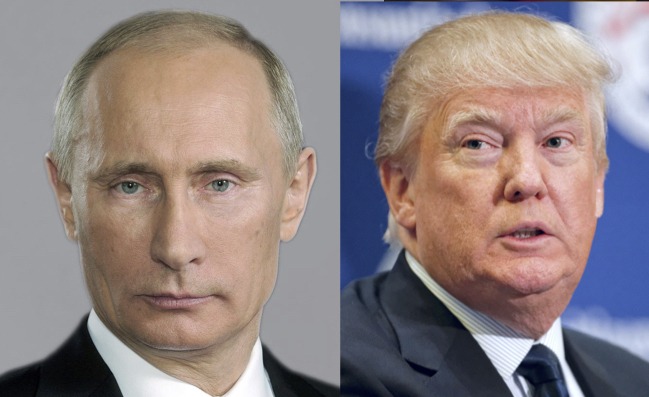Vladimir Putin just got exactly what he wanted out of his puppet Donald Trump

If you‘ve been keeping an eye on Donald Trump’s Twitter account over the past few days, you may have wondered how Napoleon Bonaparte ended up making a cameo appearance in one of the Tweeter-in-Chief’s online musings: “Anyone who wants to assist Syria in protecting the Kurds is good with me, whether it is Russia, China, or Napoleon Bonaparte. I hope they all do great, we are 7,000 miles away!“
Interestingly, this mention of Napoleon in the context of the Kurds’ current struggle with Turkey isn’t quite as absurd as it appears at first glance, since Bonaparte did indeed fight (and defeat) the Turks – or, more precisely, the Ottomans – in the Battle of Abukir in 1799. However, the fact that the author of the tweet possessed enough historical knowledge to make this reference seems to suggest that it was not necessarily written by Donald Trump, whose awareness of history rarely seems to extend further back than his last lunch. This may well be a level or two above his intellectual pay grade.
Apart from the arguably somewhat clever Napoleon reference, the tweet, which casually dismisses the conflict in Syria as something that is taking place 7,000 miles away and therefore does not concern the U.S. at all, shows that Mr. Trump is woefully ill-suited for the position he is currently holding. Leaving aside China – which is one of the few powers that is really not involved in Syria right now – or Napoleon – who is quite dead – the President of the United States should indeed very much care about the involvement of Russia, the third player mentioned in the tweet.
As predicted, the Kurdish fighters struck a deal with Damascus to protect themselves against the Turkish onslaught in northeastern Syria, and this deal was brokered by Vladimir Putin, who is shaping up to become a real powerbroker in the region. Also, CNN reported on Tuesday morning that Russian troops wasted no time when it came to filling the vacuum created by the withdrawal of American soldiers. They moved quickly to take over abandoned U.S. bases in Syria and gleefully posted footage of that on the internet.
It is fairly obvious that Donald Trump has taken a lot of heat over his decision to give President Erdogan carte blanche for his long-planned genocide in the area south of the Turkish border, and Trump is now trying to get the horse back into the stable by imposing sanctions on Turkey. But the horse has bolted and Erdogan is not going to stop killing Kurds just because the U.S. is asking nicely while having very little to no leverage left. The Turkish president is grimly determined to eliminate what he sees as an existential threat to his country and he is perfectly willing to accept much more serious blows to the Turkish economy than we are seeing right now.
Meanwhile, Turkey and Russia have been moving closer together and getting along quite well in areas where collaboration promises to be profitable for both sides. In addition, Vladimir Putin just embarked on a visit to the UAE where he was received with pomp and circumstance and where initial talks about future cooperation seemed to be going quite well. Russia is quite obviously making considerable headway in becoming an important player in the Middle East while the U.S. seems to be giving up ground voluntarily.
As journalist Arwa Damon put it on CNN: “The world is dealing with a complex, multidimensional Middle East chess match, while Trump is struggling to figure out Middle East checkers.“ The shifting dynamics of international alliances are indeed interesting and complex. After all, the French – well before Napoleon Bonaparte came along – also fought together with the Turks against a common enemy when this seemed opportune. But it is doubtful that whoever wrote the tweet that was posted on Donald Trump’s timeline is aware of that fact.

